There is a lot of advice about how to outline a story on the internet, and almost all of it was it was useless, so I stopped trying to wade through it. Like it's just bad content marketing run amok. So I'm going to give you the most useful ways I know to understand stories. The keys to the kingdom as I understand them. And trust me, not a single one of them is "Use mind mapping software."
Let's say you want to understand a story. A book, a movie, graphic novel, TV show, play, series of tweets, radio drama... could be anything? How do you do it? You read it, of course, but that's not enough. Because stories have a kind of magic. They transport us to another place. And, if they are well constructed, we get swept along by them in a way that makes it difficult to analyze how they work while they are working on us. In fact, if you're watching a movie and you notice something like the beginning of the third act, chances are it's not a very good movie. Because when it's good, you're so engaged, you don't even think about that kind of stuff.
So, I think, to really understand a story, you have to outline it. And that means, reading or watching it again, and writing down the bare bones of what happens. There is simply no wrong way to do this. Should you use a spreadsheet, or a notepad or index cards or mindmapping software? The answer is yes. Whatever makes it easy for you, because, whatever tool you use, you will learn something. And that's the point.
So everything I have to say from this point forward is just to make it more profitable for you to do. See there are two reasons to do this.
You want to write something of your own.
You want to enjoy every story you encounter more.
And, for me, #2 is by far the better reason. You're increasing the value of every story you're going to encounter for the rest of your life. That's what I call leverage.
Stories can be tricky and the process can be confusing -- especially if you've had one too many English classes recently -- So I'm going to arm you with some of the conceptual tools I use to make things clear.
Principle #1 -- Any story is a system of systems.
So think of the elements of a novel. Dialog, character, symbolism, description, narration, plot, chaptering, paragraphing, setting -- it could go on and on and on. There are many, many ways to combine those elements to create a good novel. And no two authors do it the same way and no two authors should.
So, in your outline, only pay attention to the systems that are interesting to you. If you don't see any great symbols, don't go looking for them. It's not a box you have to check off. What you want to understand is one level up from that. How all these systems work together.
Plot
Outlining a plot is as simple as writing down what happens in the beats of the story.
Luke wants to join the rebellion
The droids run off
Luke chases the droids
Luke is attacked by Sandmen and rescued by Obi-Wan Kenobi
And from that list, you can begin to understand the story.
If you get stuck on what's important in a scene or why it matters, you can always ask, what happens if you don't have that scene in the story? There's a lot of other ways you can [[analyze a scene]], that's going to have to be a video of its own, but most of the time if you just get the basic beats of the story down, many new things about the story will become clear and that's what you want.
Here are the questions to start asking of the plot?
What started the story rolling? How did the character get into this mess?
What does the character want?
What happens if the character doesn't get it?
From this list of beats, you want to get THREE things. External Story, Internal Story, and Theme.
First, what's the external story. For Star Wars, the external story is blowing up the Death Star/defeating the Empire.
The second thing you want to understand is the internal story. What does the character need psychologically, inside themselves, to be whole? Luke has to learn to trust himself and his abilities to reach his full potential. To use the Force Luke.
And the third thing is the theme? What's the value that every scene or almost every scene turns on? That ties the whole thing together. The theme of Star Wars, loosely, is believing in something bigger than yourself. And while Luke's story resolves powerfully on this theme when uses the Force to blow up the Death Star, so too does Han Solo's story. He doesn't believe in the Force, or the Rebellion or anything. He bails out of the fight with the Death Star because he has a price on his head. He's looking out for himself. But he changes and we see this in action when he comes back in the end to save Luke so he can blow up the Death Star. So you might say, the theme is "Only when we believe in something bigger than ourselves can evil be defeated."
Genre
I think the most important thing you can know about any story is what genre it is in. People interested in literary fiction have looked down on genre fiction, but that prejudice certainly doesn't stop literary fiction from being its own genre. And what a genre does is set the reader's expectation of how things should be in the story. It's a set of conventions that the writer must deal with.
Genre conventions are conventions about the way the systems of story interlock. Some of these conventions are obligatory scenes. Every thriller needs a daring escape scene. And a hero at the mercy of the villain scene. But these conventions extend to everything. Certain symbols or lines. A Bond movie isn't a Bond movie without spy gadgets, and a cool car, a scene with tuxedoes and evening gowns and the lines, "Shaken not Stirred" and "Bond, James Bond."
Genre even extends to permissible themes. A romance novel cannot have a theme that denies that love is possible and still be a romance novel.
Form
Closely related to Genre is the form a story takes.
Stories only have a limited number of forms. You could say there are five or seven or ten basic plots, and still be right. It's all in how you slice them. But if you think there are 50 basic plots, you are wrong. It may be an indefinable number, but it's finite and it's small.
So it's also very useful to try to fit the story you outline to one of these structures.
Dostoyevsky said there are only two plots
Person goes on a journey
Stranger comes to town
Christopher Booker worked on his book Seven Basic Plots for 34 years and came up with these.
Overcoming the Monster
Rags to Riches
The Quest
Voyage and Return
Comedy
Tragedy
Rebirth
Blake Snyder, in his book, Save the Cat identified these 10 plots for film.
Monster in the House
Golden Fleece
Out of the Bottle
Dude with a Problem
Rites of Passage
Buddy Love
Whydunit
The Fool Triumphant
Institutionalized
Superhero
So Cowboy Movie is a genre that includes many forms of story Unforgiven is a Voyage and Return story. And you could say it was a kind of Buddy Love. The Searchers is a Quest or Golden Fleece.
Sci-Fi Movie is a genre that also includes a wide range of story forms. Alien is Overcoming the Monster or Monster in the House.
You don't have to use either of these schemas for story form. Just have a good sense of what other stories the story you want to understand is like. If you say it's unlike any other story -- you haven't understood the form.
Character
The last very easy thing to do when outlining is to make a list of major characters and look at how they stack up against each other. What's their function in the story and what would happen if they weren't there? What stance do they take on the theme? In Star Wars, Han Solo rejects the theme, then comes around in the end, enabling Luke to blow up the Death Star. He's the skeptic.
And that kind of character is very powerful in fantasy novels. Because that character grants us permission to enter the reality. If it's all zealots and true believers in a fantasy world, it's harder for us to suspend disbelief. So Han Solo isn't just there to be cool, and he isn't just transportation for Luke, you lose a lot of meaning if you take his character out.
And that's it. Well, I mean it's not everything. Outlining a story certainly can be more complicated than that, but it doesn't have to be. Just write down the beats and ask a few questions and a whole new world will open up to you. Even if you never write anything of your own, outlining a story will help you to enjoy and appreciate every other story more.
And that's worth something.
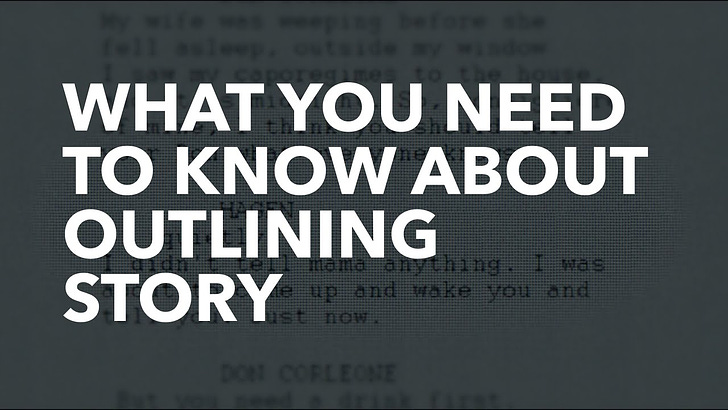

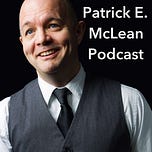



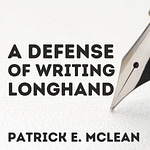


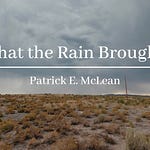
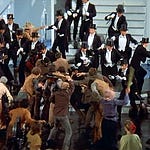


Share this post